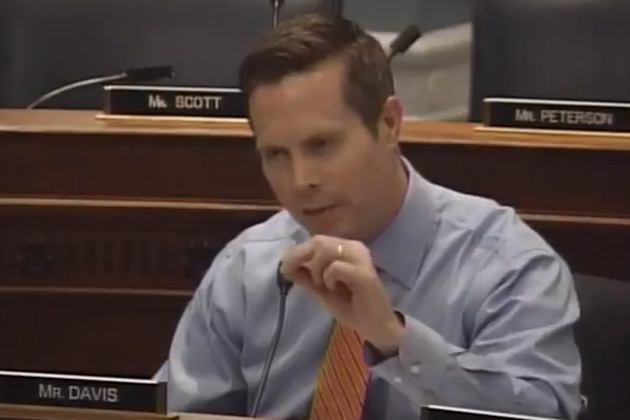
By Illinois Radio Network
SPRINGFIELD – Illinoisans would still be able to deduct their second-highest-in-the-nation property taxes from their federal tax bill under a federal tax reform plan unveiled Thursday. If passed, proponents say it could also lead to higher wages.
The latest reform plan officially released Thursday lowers the seven tax brackets to three, including a zero percent income tax rate for low-income earners. There would be a higher income tax rate of nearly 40 percent for high-income earners. That would be on top of Illinois’ state income tax of 4.95 percent.
The federal plan also would double the standard deduction and expands the Child Tax Credit to $1,600.
U.S. Rep. Peter Roskam, R-Wheaton, said the plan would mean a family making $58,000 would save $1,100 a year.
U.S. Rep. Rodney Davis, R-Taylorville, said under the proposed plan, 95 percent of his constituents will file their federal taxes on a postcard. He said the minority of property owners that still want to itemize can.
“If many Illinoisans, 25 percent that itemize today, decide that they want to still itemize instead of taking the double standard deduction, they’re going to have an opportunity to deduct their property taxes,” Davis said, but only up to $10,000.
The Illinois House is considering a bill to freeze property taxes for two years, something that could come up during veto session next week.
If federal tax reform officially proposed by members of Congress passes, Illinois businesses will be able to invest more in the state, which could include increasing wages.
Roskam said if the reform passes, that will be huge for a company like Peoria-based Caterpillar. He said businesses like the heavy equipment manufacturer would be hit with a fine to bring assets back to the U.S., but their overall rate would ultimately come down.
“If their own rate comes down,” Roskam said, “that gives them the opportunity to hire more people and expand their operations.”
But not everyone is on board. Illinois Treasurer Michael Frerichs blasted the proposals, calling it a horror story.
“There is no question that we need to simplify the federal tax code,” Frerichs said. “However, closed-door conversations attended only by one political party cannot lead to a system that treats everyone fairly.”
And state Rep. Bill Foster, D-Naperville, said in a statement that the plan released Thursday is not the reform taxpayers need.
“While I am committed to working on a bipartisan tax simplification plan that will not increase our debt and be fair to middle class families, this plan is not a step in the right direction,” Foster said.
Roskam said there will always be naysayers.
“Some of this will be honest criticism,” Roskam said, “but some folks will just come and say, ‘I like the status quo, I like the way it is,’ but that’s not good enough.”
Davis said proponents have been very open about the proposal in the lead-up to it being made public Thursday. He hopes to have it debated and passed by Congress before the end of the year.
“It’s a great first step in working it through the committee process,” Davis said. “And hopefully by the end of this month or next, we’ll be able to deliver to the American people a bill allowing them to keep more money in their pockets instead of sending their hard earned money to Washington D.C.”






